News & Event


News & Event
News & Event
The 3rd KISTEP NIS Policy Colloquium
- Writer Chaerin Park
- Date2020-09-24
- Hit1,142
File
-
Download
 20200924140522.png
(1.21MB / Download 308회)
20200924140522.png
(1.21MB / Download 308회)
On Sep 23rd, Korea Institute of S&T Evaluation and Planning (KISTEP) held the 3rd NIS policy colloquium online, themed terms of building a convergent ecosystem of sustainable government-funded institutes.
This colloquium was aimed to discuss the terms of government-funded institutes-focused convergent research, and to find the ways to establish open innovation environment through the example of National Research Council of Science & Technology (NST)’s convergent research. This event was streamed online in KISTEP youtube channel.
(▷Replay: https://youtu.be/_VVdt2XHpiI)
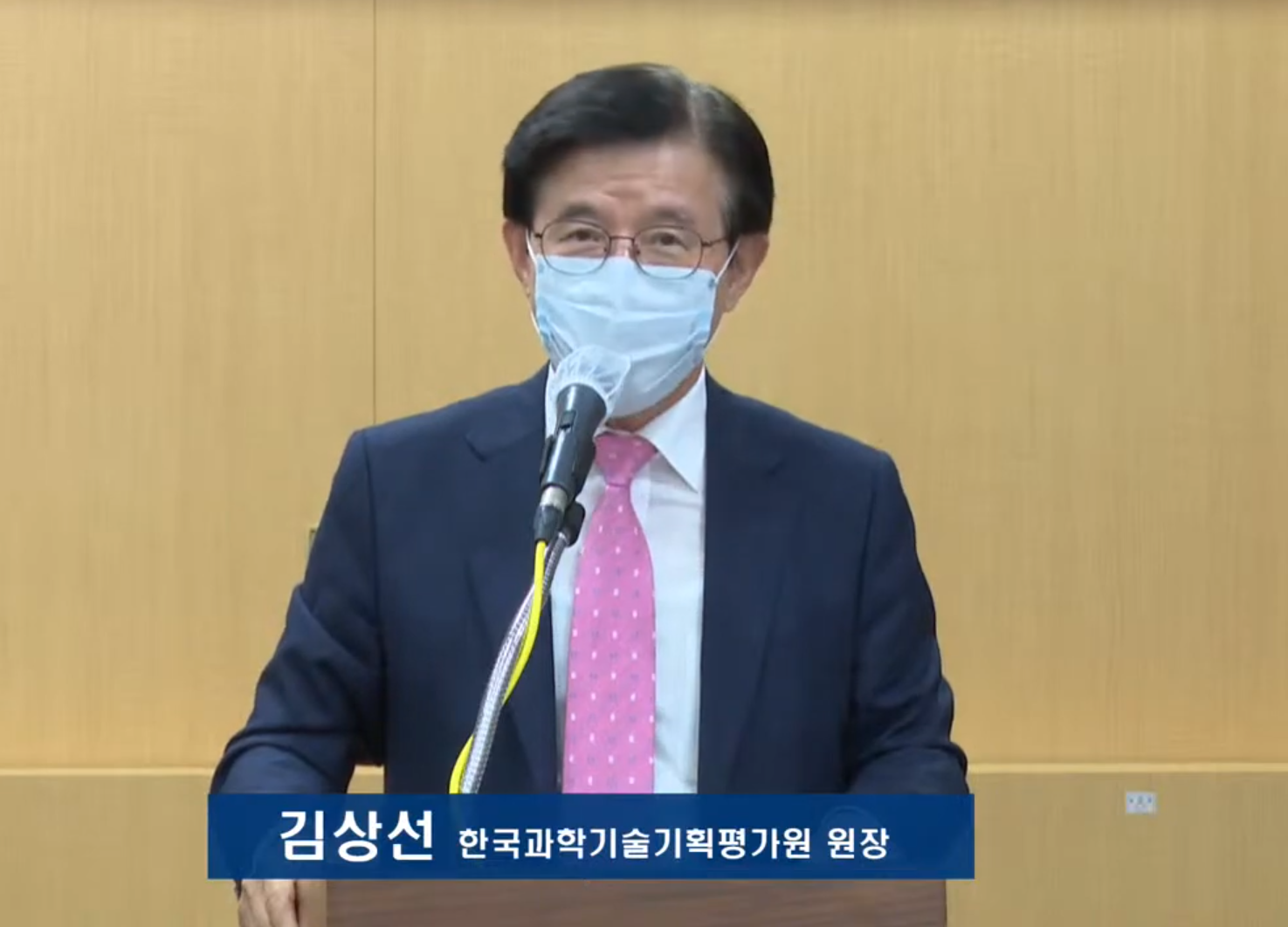
President Sang-seon Kim said: “The importance of industrial-academic convergence caused by S&T enlargement and convergence has been more critical, so this colloquium will help to diagnose the problems of government-funded institutes, and moreover, it is expected to contribute to make a measure for building a ecosystem of convergent research.
Main Presentations consisted of 2 sessions: (1) Practice of Center for Convergent Chemical Process (CCP), (2) Suggestions for Advance of Government-funded Institutes’ Convergent Research.
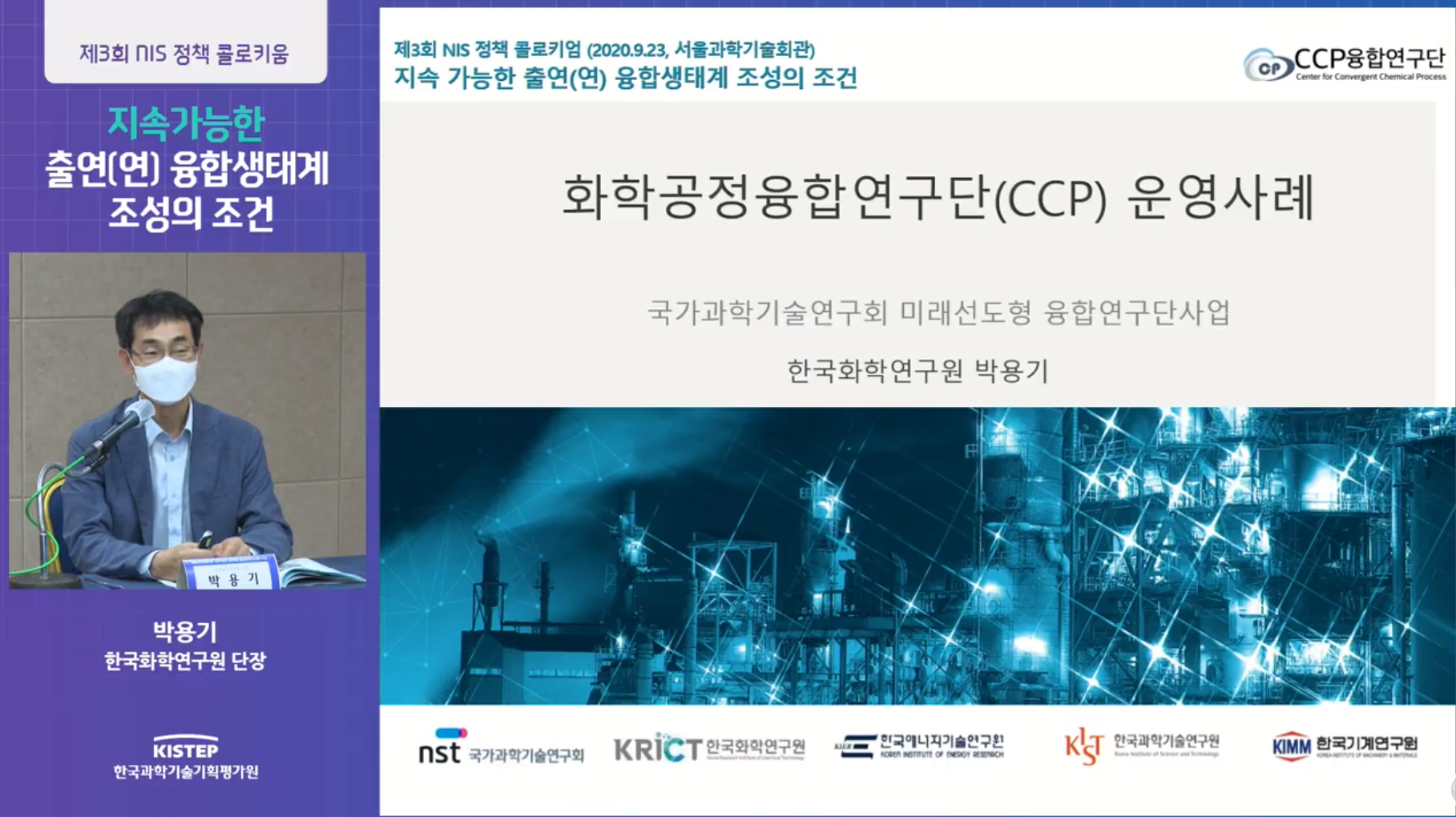
Yong-gi Park explained the example of CCP, and pointed concerns of on-site convergent research: ▲Efficiency problems caused by restricted rules, ▲Limitations to utilize established infrastructures after national R&D, ▲Lack of study period to attain the level of commercialization, and also he stressed the necessity to find a solution.
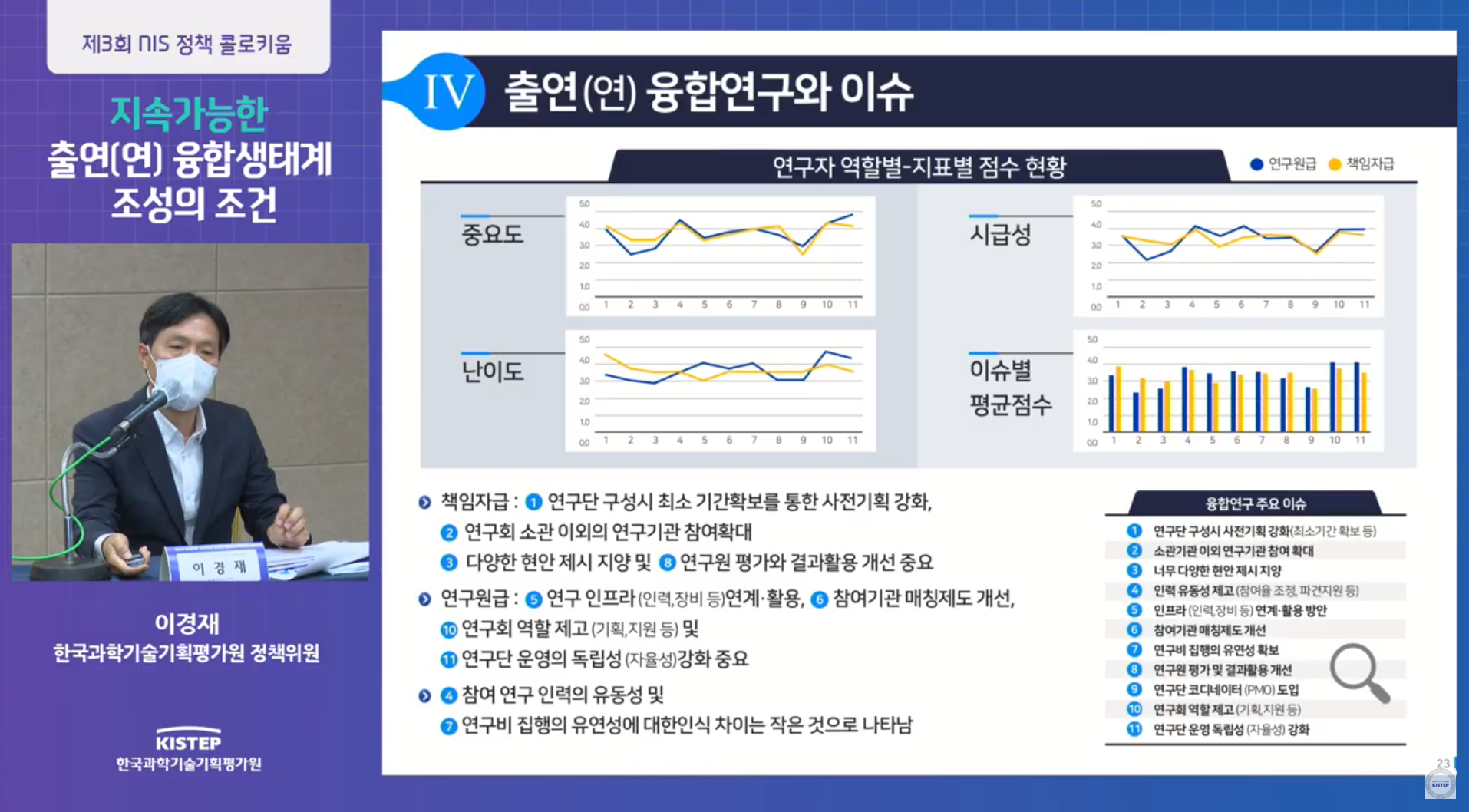
Next, he explained the concept of convergent research and related domestic and foreign policy changes and examples of overseas convergent research. Based on the result of comprehensive assessment, ▲Strengthening operational autonomy, ▲Strengthening research council’s planning and supporting ability were suggested as the most important issues. Lastly, he gave some suggestions for advancing convergent research: ▲Improving problem-solving skills, strengthening planning research for excellent performance, motivating industry-university-institute collaborative participation, ▲Developing evaluation system considering objectives of organizational convergent research, ▲Establishing an organization under NST which exclusively executes convergent research, and building a system for strategy planning and supporting, ▲Developing a mid to long term vision and a strategy for building a convergent ecosystem of sustainable government-funded institutes.
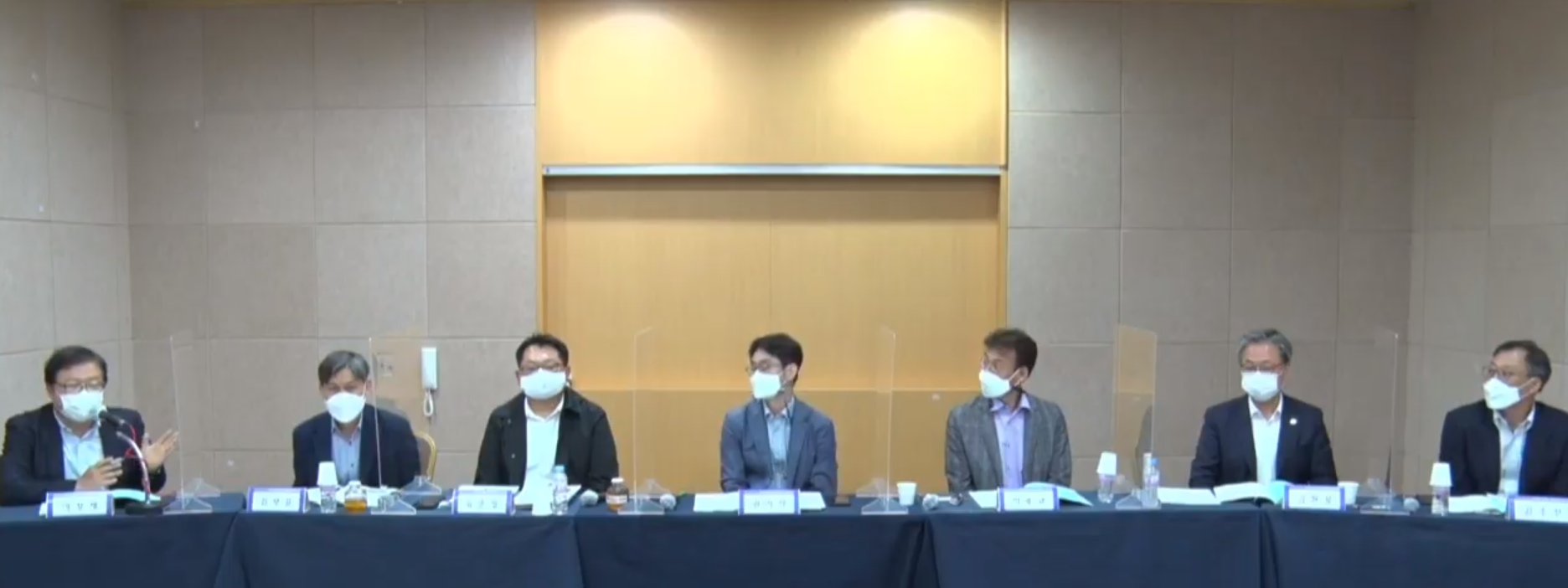
In the following discussion, Jang-jae Lee (KISTEP) hosted the discussion, and Sang-gil Kim (Korea Industrial Technology Association, KOITA), Jun-young Ryu (Money Today Press), Ki-seok Kwon (Hanbat National University), Yong-kyu Lee (NST), Hyun-cheol Kim (National Research Foundation, NRF), Ju-seon Kim (Korea Institute of S&T, KIST) participated in the discussion.
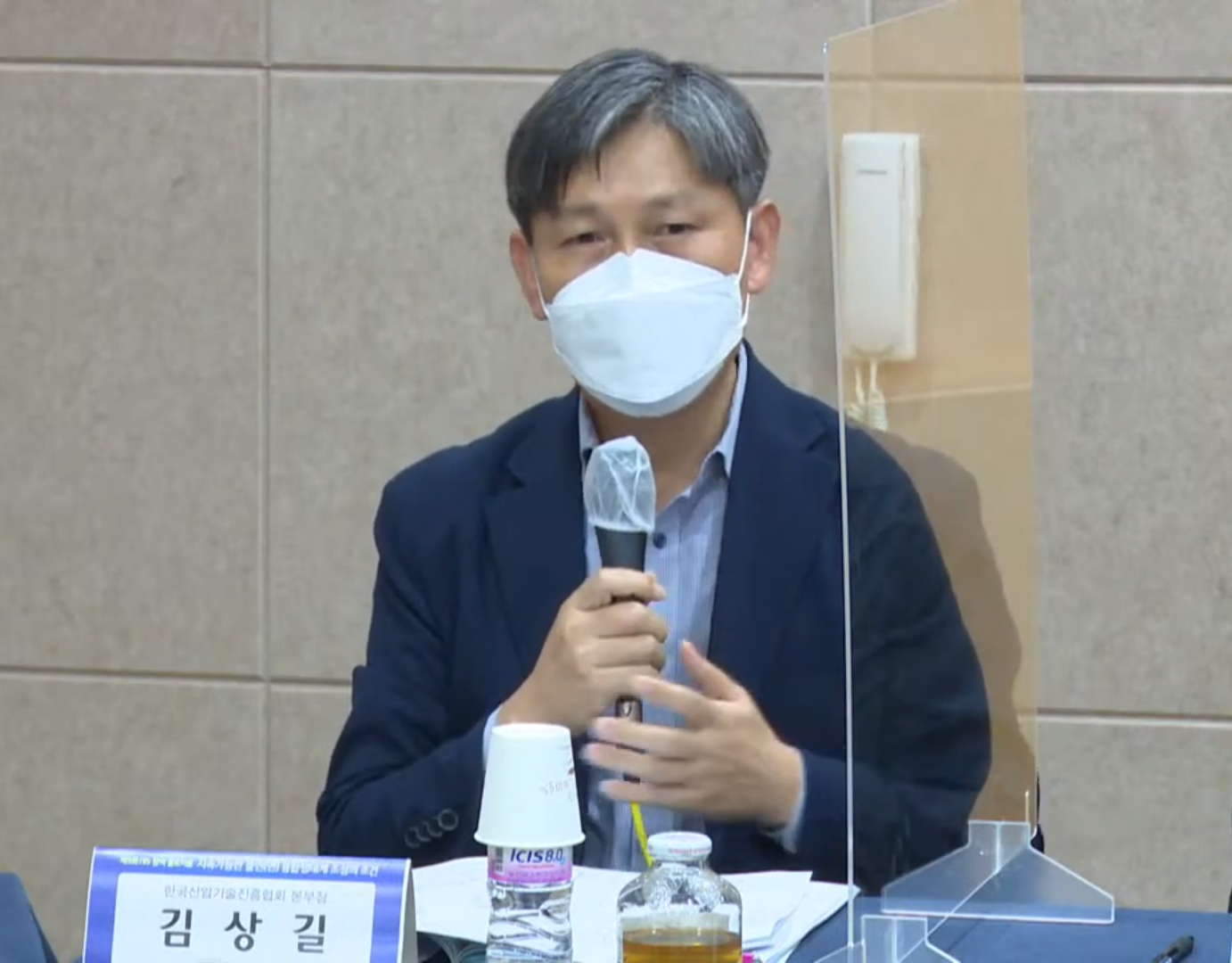 Sang-gil Kim highlights It’s necessary to make research objectives clear in order to make sustainable convergent research ecosystem, so that demand-oriented planning and performance evaluation is required.
Sang-gil Kim highlights It’s necessary to make research objectives clear in order to make sustainable convergent research ecosystem, so that demand-oriented planning and performance evaluation is required.
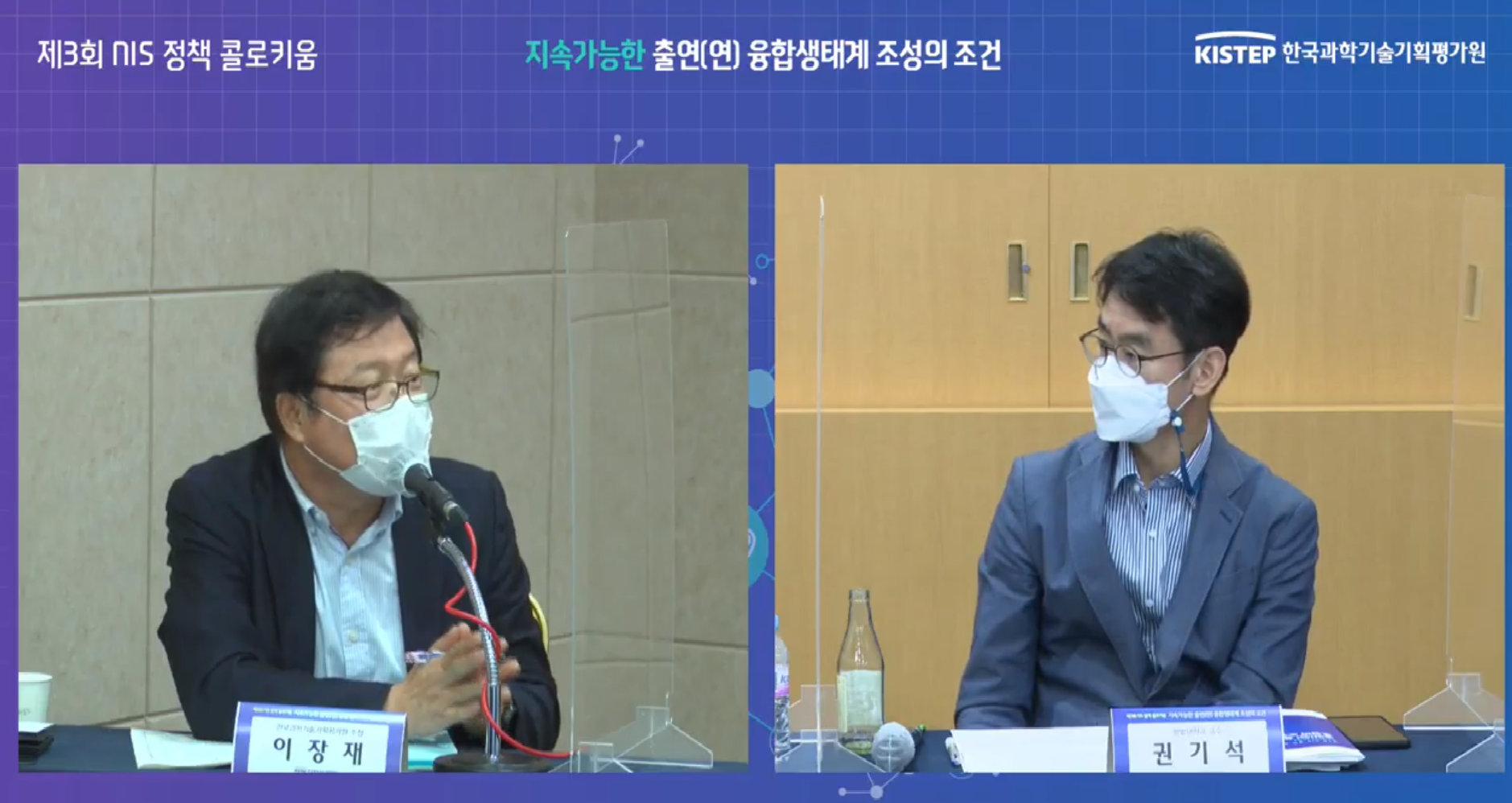
Professor Ki-seok Kwon commented the necessity to be recognized as a methodology, not the ultimate goal itself, and also remarked the mission and role of government-funded institutes, and stressed governance change is required for convergent research.
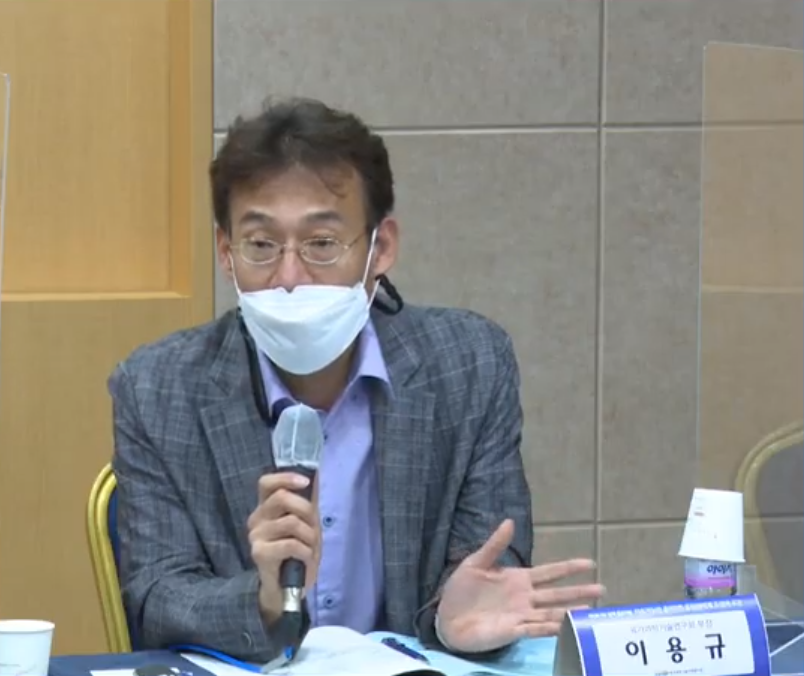
Yong-kyu Lee highlighted the necessity to disseminate the convergent culture each researchers can recognize and sympathize, and also suggested if the government keeps improving the direction of system and policy, an ecosystem they can organically cooperate each other will be established.
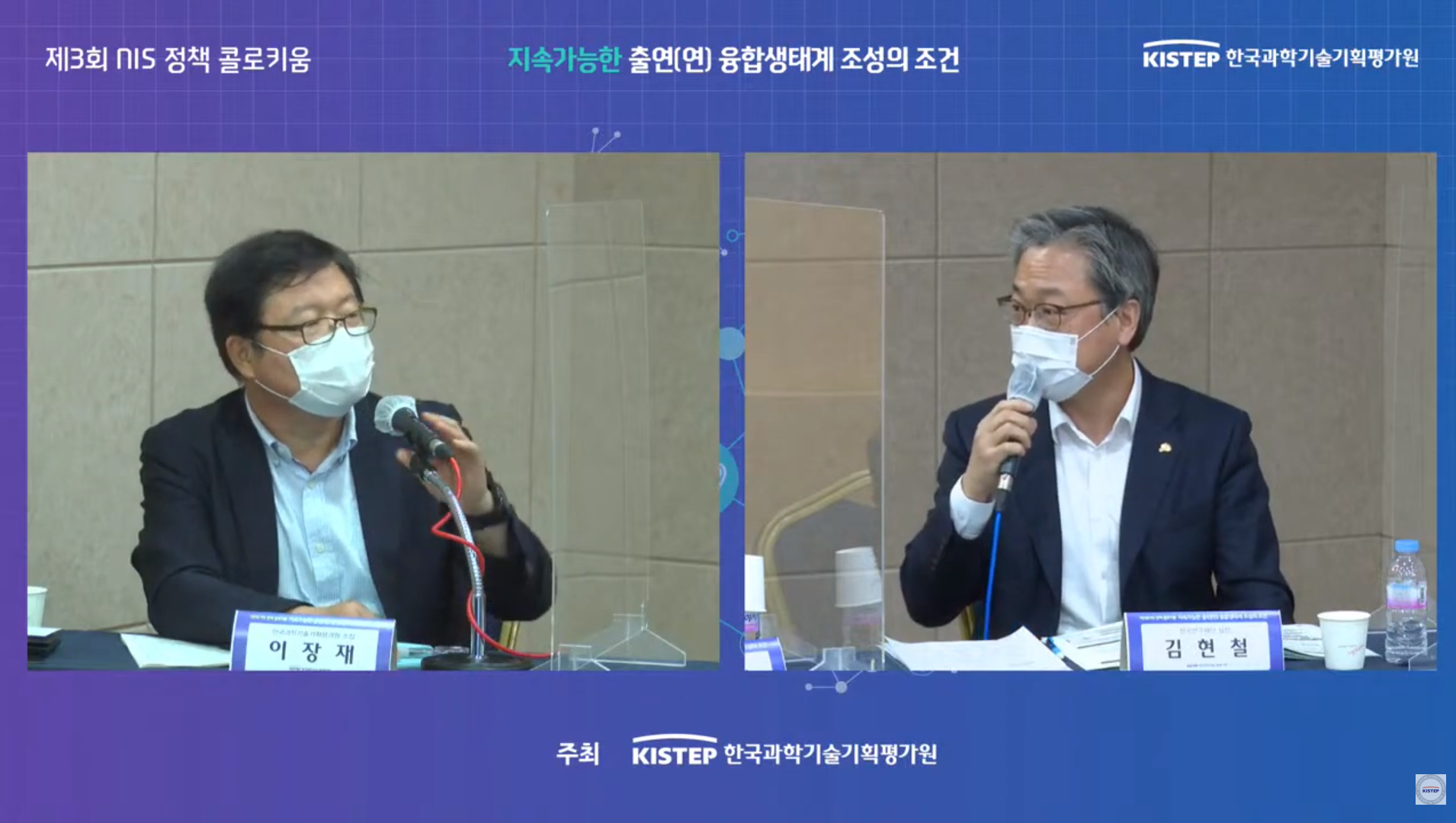
Hyun-cheol Kim stressed research convergence also needs ‘Agile Development Methodology’ to handle market and technology change, and not comprehensive results of research but demand-oriented convergent research that can continuously provide values and can be apply in practice right away is necessary.
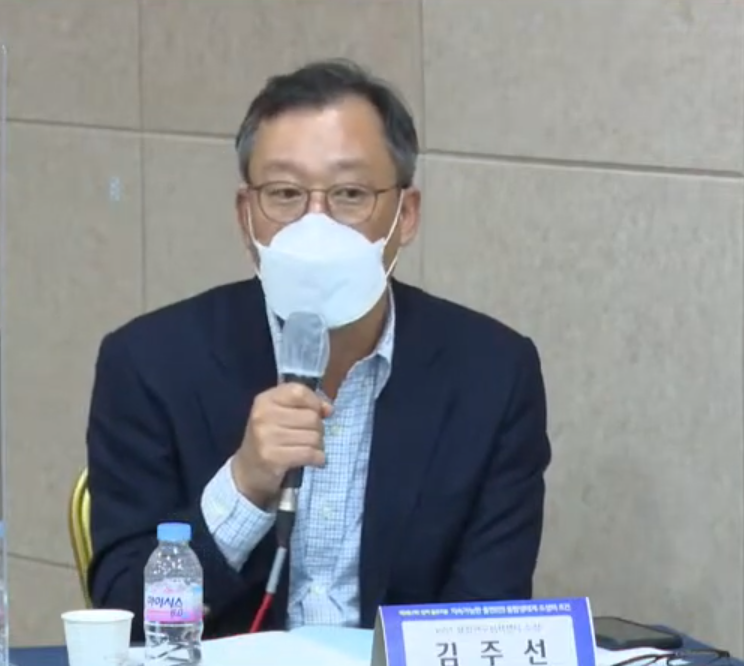
Ju-seon Kim stressed the necessity of support policy for vitalizing interdisciplinary convergent research like the U.S.A.‘s ’Convergence Accelerator’.
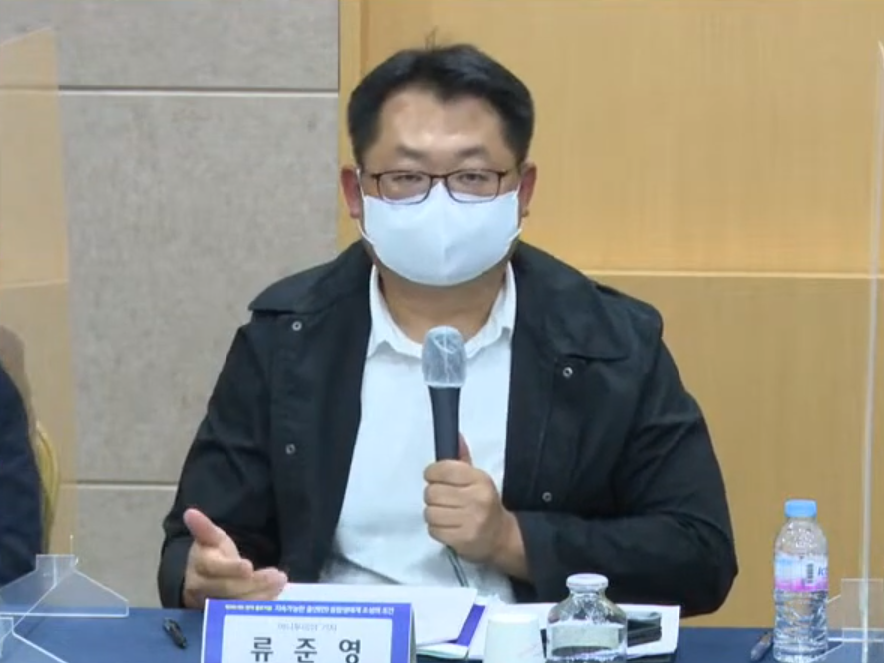
Jun-young Ryu showed how CCP contributed to vitalize collaborations such as national technology development of next-generation intelligent semiconductors.
This colloquium was aimed to discuss the terms of government-funded institutes-focused convergent research, and to find the ways to establish open innovation environment through the example of National Research Council of Science & Technology (NST)’s convergent research. This event was streamed online in KISTEP youtube channel.
(▷Replay: https://youtu.be/_VVdt2XHpiI)

▲ (Opening Address) President Sang-seon Kim (KISTEP)
President Sang-seon Kim said: “The importance of industrial-academic convergence caused by S&T enlargement and convergence has been more critical, so this colloquium will help to diagnose the problems of government-funded institutes, and moreover, it is expected to contribute to make a measure for building a ecosystem of convergent research.
Main Presentations consisted of 2 sessions: (1) Practice of Center for Convergent Chemical Process (CCP), (2) Suggestions for Advance of Government-funded Institutes’ Convergent Research.

▲ (Presentation 1) Yong-Ki Park (Korea Research Institute of Chemical Technology, KRICT)
Yong-gi Park explained the example of CCP, and pointed concerns of on-site convergent research: ▲Efficiency problems caused by restricted rules, ▲Limitations to utilize established infrastructures after national R&D, ▲Lack of study period to attain the level of commercialization, and also he stressed the necessity to find a solution.

▲ (Presentation 2) Kyeong-jae Lee (KISTEP)
Next, he explained the concept of convergent research and related domestic and foreign policy changes and examples of overseas convergent research. Based on the result of comprehensive assessment, ▲Strengthening operational autonomy, ▲Strengthening research council’s planning and supporting ability were suggested as the most important issues. Lastly, he gave some suggestions for advancing convergent research: ▲Improving problem-solving skills, strengthening planning research for excellent performance, motivating industry-university-institute collaborative participation, ▲Developing evaluation system considering objectives of organizational convergent research, ▲Establishing an organization under NST which exclusively executes convergent research, and building a system for strategy planning and supporting, ▲Developing a mid to long term vision and a strategy for building a convergent ecosystem of sustainable government-funded institutes.

▲ (Discussion) From left to right, (Host) Jang-jae Lee (KISTEP), Sang-gil Kim (Korea Industrial Technology Association, KOITA), Jun-young Ryu (Money Today Press), Ki-seok Kwon (Hanbat National University), Yong-kyu Lee (NST), Hyun-cheol Kim (National Research Foundation, NRF), Ju-seon Kim (Korea Institute of S&T, KIST)
In the following discussion, Jang-jae Lee (KISTEP) hosted the discussion, and Sang-gil Kim (Korea Industrial Technology Association, KOITA), Jun-young Ryu (Money Today Press), Ki-seok Kwon (Hanbat National University), Yong-kyu Lee (NST), Hyun-cheol Kim (National Research Foundation, NRF), Ju-seon Kim (Korea Institute of S&T, KIST) participated in the discussion.

▲ (Panel 1) Sang-gil Kim (KOITA)

▲ (Panel 2) Ki-seok Kwon (Hanbat National University)
Professor Ki-seok Kwon commented the necessity to be recognized as a methodology, not the ultimate goal itself, and also remarked the mission and role of government-funded institutes, and stressed governance change is required for convergent research.

▲ (Panel 3) Yong-kyu Lee (NST)
Yong-kyu Lee highlighted the necessity to disseminate the convergent culture each researchers can recognize and sympathize, and also suggested if the government keeps improving the direction of system and policy, an ecosystem they can organically cooperate each other will be established.

▲ (Panel 4) Hyun-cheol Kim (NRF)
Hyun-cheol Kim stressed research convergence also needs ‘Agile Development Methodology’ to handle market and technology change, and not comprehensive results of research but demand-oriented convergent research that can continuously provide values and can be apply in practice right away is necessary.

▲ (Panel 5) Ju-seon Kim (KIST)
Ju-seon Kim stressed the necessity of support policy for vitalizing interdisciplinary convergent research like the U.S.A.‘s ’Convergence Accelerator’.

▲ (Panel 6) Jun-young Ryu (Money Today Press)
Jun-young Ryu showed how CCP contributed to vitalize collaborations such as national technology development of next-generation intelligent semiconductors.